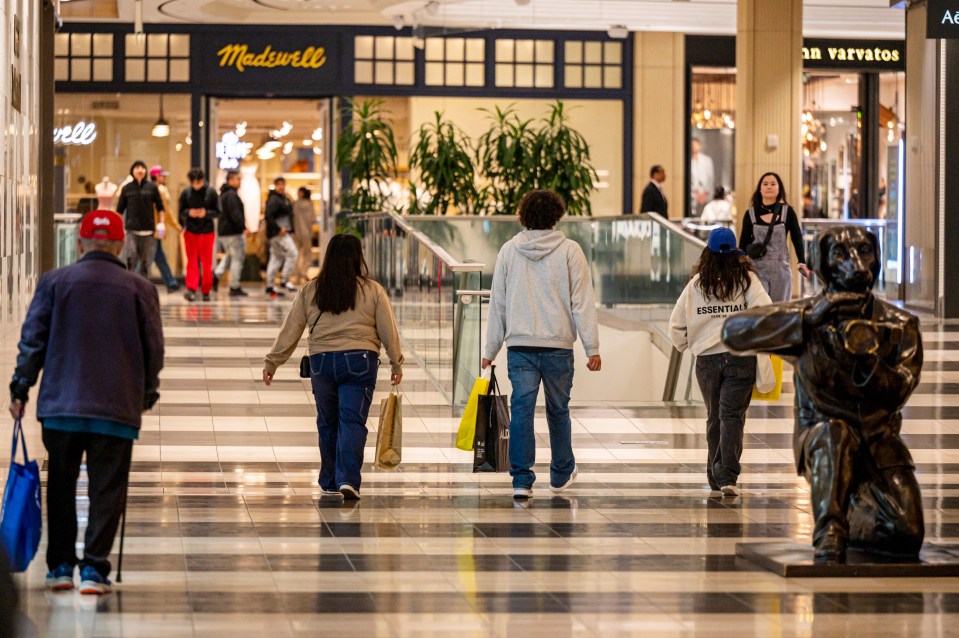BRITAIN’S first American-style shopping centre will be demolished this year – and work is set to start in weeks.
The Viking Centre in Jarrow, near Newcastle is being partially pulled down as part of a major revamp.
The plans have been given the go ahead from the council and demolition works are set to commence in the coming weeks.
As part of the demolition a number of vacant units will be pulled down including the beloved former Wilko building on the corner of Bede Precinct and Ellison Street.
Also being torn down are a number of former charity shops.
But it’s not all bad news with locals relieved to hear that the Jarrow Buffs Social Club at 96 Ellison Street will remain untouched.
The major overhaul is aimed at opening up space for future developments on the site.
The work is due to start in July and will be finished by 1 December 2025, meaning the site could be ready just in time for the busy Christmas season.
The application for the demolition was submitted earlier this year by Sheet Anchor Investments Limited, the owners of the site, and was approved on April 29, 2025.
No objections were received during the public consultation period.
Planning officers noted that the method of demolition was appropriate for the site and that the restoration plans would leave the area in a “tidy condition”.
The buildings will be knocked down using a top-down method.
This means the roof will be removed first, followed by the perimeter walls.
The units will then be demolished down to “slab level”.
This comes as part of a string of demolitions across the country.
The once-thriving Broadmarsh shopping centre in Nottingham is set to be pulled down, sparking fierce backlash from locals.
Once a bustling hotspot in the 90s, Broadmarsh has stood abandoned since 2020 when its former operator collapsed into administration.
Now, years of decay could soon come to an end.
Homes England, the government agency tasked with boosting affordable housing, has snapped up the site and submitted major plans to Nottingham City Council.
They want permission to bulldoze the derelict structure and kick start a huge redevelopment project in the heart of the city.
The £650 million revamp promises 1,000 new homes, 20,000 square metres of retail, office, and community space, and around 2,000 full-time jobs once finished.
Why are retailers closing shops?
EMPTY shops have become an eyesore on many British high streets and are often symbolic of a town centre’s decline
The Sun’s business editor Ashley Armstrong explains why so many retailers are shutting their doors.
In many cases, retailers are shutting stores because they are no longer the money-makers they once were because of the rise of online shopping.
Falling store sales and rising staff costs have made it even more expensive for shops to stay open.
The British Retail Consortium has predicted that the Treasury’s hike to employer NICs from April 2025, will cost the retail sector £2.3billion.
At the same time, the minimum wage will rise to £12.21 an hour from April, and the minimum wage for people aged 18-20 will rise to £10 an hour, an increase of £1.40.
In some cases, retailers are shutting a store and reopening a new shop at the other end of a high street to reflect how a town has changed.
The problem is that when a big shop closes, footfall falls across the local high street, which puts more shops at risk of closing.
Retail parks are increasingly popular with shoppers, who want to be able to get easy, free parking at a time when local councils have hiked parking charges in towns.
Many retailers including Next and Marks & Spencer have been shutting stores on the high street and taking bigger stores in better-performing retail parks instead.
In some cases, stores have been shut when a retailer goes bust, as in the case of Carpetright, Debenhams, Dorothy Perkins, Paperchase, Ted Baker, The Body Shop, Topshop and Wilko to name a few.
What’s increasingly common is when a chain goes bust a rival retailer or private equity firm snaps up the intellectual property rights so they can own the brand and sell it online.
They may go on to open a handful of stores if there is customer demand, but there are rarely ever as many stores or in the same places.
The Centre for Retail Research (CRR) has warned that around 17,350 retail sites are expected to shut down this year














